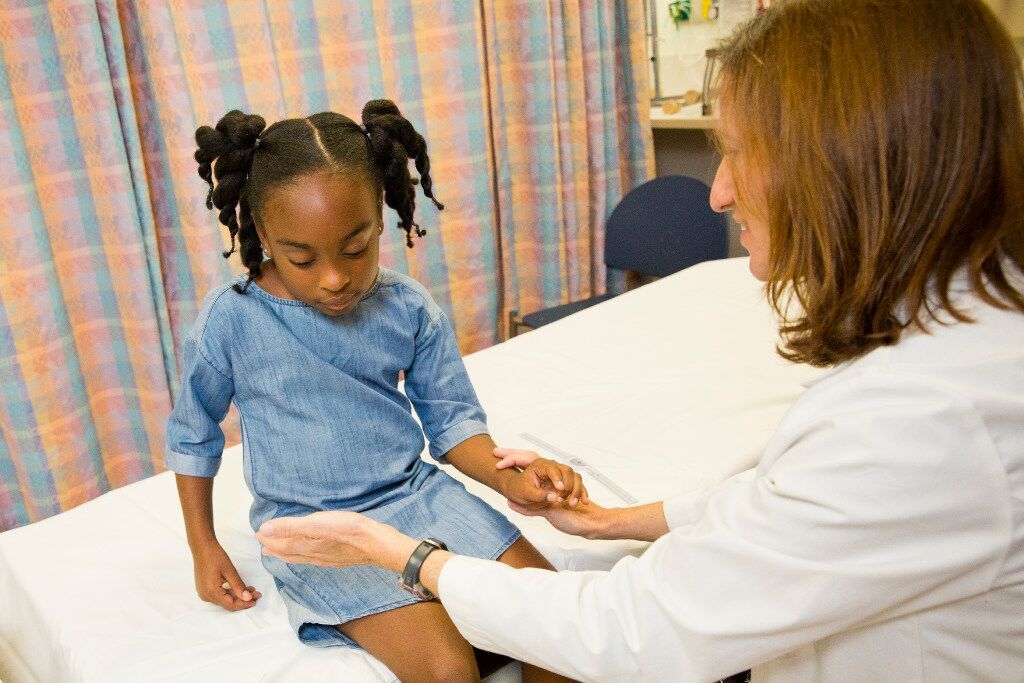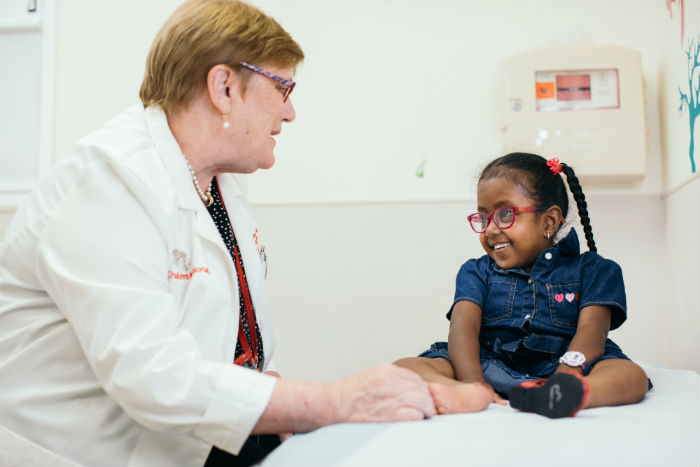Condition
Pediatric Lupus
What You Need to Know
Lupus is a disease that causes episodes of inflammation and damage to many parts of the body, including the skin and organs.
Key Symptoms
Symptoms of lupus may include:
- Rash
- Fever
- Joint inflammation and pain
- Sensitivity to the sun
Diagnosis
Lupus may be hard to diagnose because many of the symptoms could be from other causes. Your child may have these tests to determine the diagnosis:
- Blood tests
- Urine tests
- Biopsies
- X-rays
Treatment
There is no known cure for lupus, but treatment can help manage it. Your child may be given medicines such as:
- Nonsteroidal anti-inflammatory drugs (NSAIDs)
- Antimalarial medicine
- Corticosteroid medicines
- Medicines that suppress the immune system
Schedule an Appointment
Our pediatric specialists provide personalized care for your child’s physical, mental and emotional health needs. Meet our providers and schedule an appointment today.
Frequently Asked Questions
What is lupus?
What causes lupus in children?
Who is at risk for lupus?
What are the symptoms of lupus in children?
How is lupus diagnosed in children?
How is lupus in children treated?
What are possible complications of lupus in children?
How can I help my child live with lupus?
When should I call my child's healthcare provider?
Meet the Providers Who Treat Lupus
Departments that Treat Lupus

Nephrology
Learn how our highly skilled pediatric nephrology team works across divisions to manage the full range of kidney diseases in children, including dialysis and kidney transplantation.

Help Kids and Make a Difference
Invest in future cures for some of life's most devastating diseases. Give today to help more children grow up stronger.









